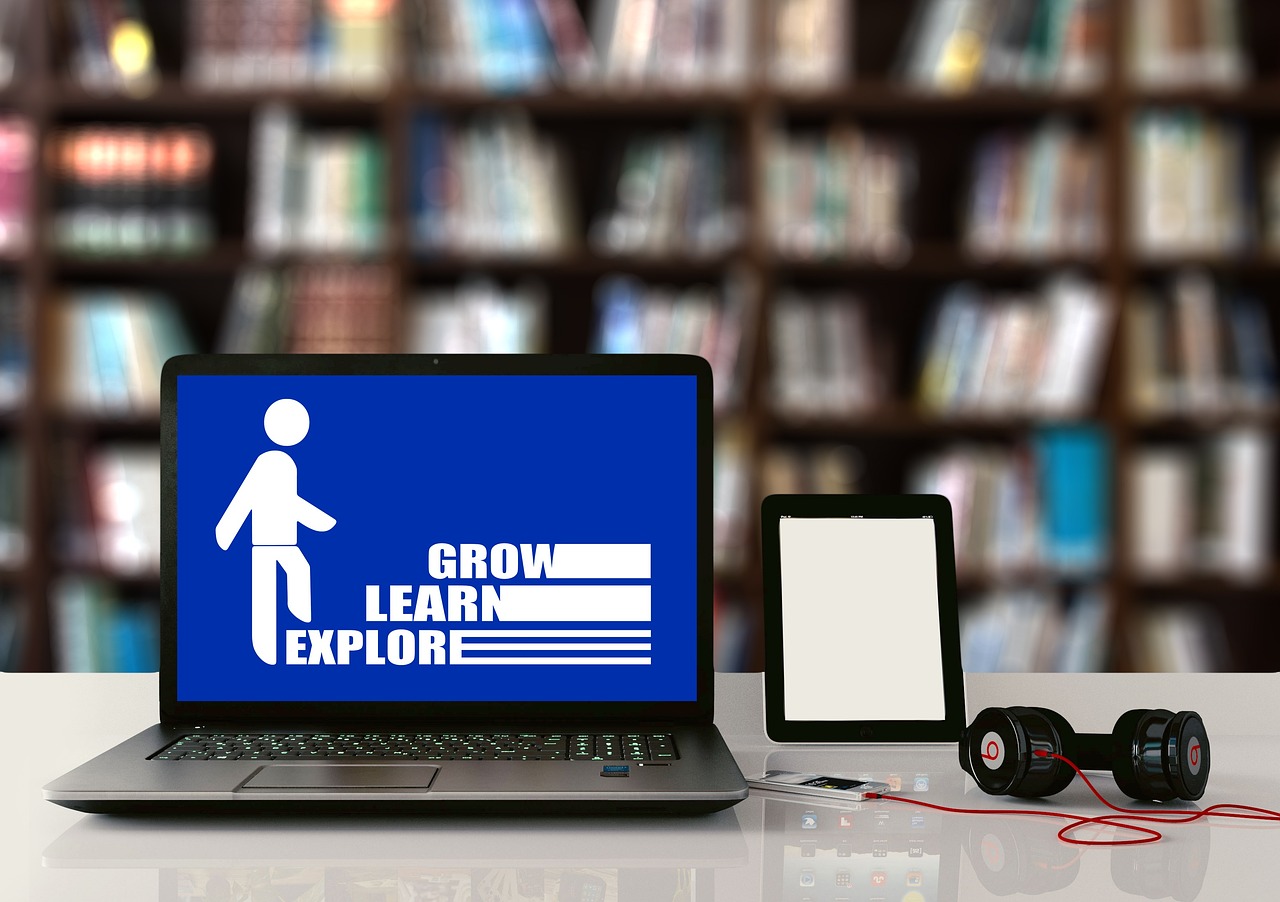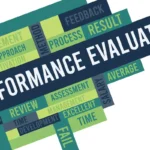The Impact of Growth Mindset Books on Personal Development
A journey of personal development often encounters obstacles. Embracing a growth mindset can transform challenges into opportunities for growth. Growth mindset books play a pivotal role in shaping this perspective. These books provide readers with the tools and insights necessary to cultivate resilience, adaptability, and a love for learning. They offer strategies to overcome setbacks and push for improvement. Additionally, they reframe failures as fuel for future success.
One key aspect of growth mindset books is their ability to inspire change. For example, books like “Mindset: The New Psychology of Success” by Carol S. Dweck lay the groundwork for understanding the differences between fixed and growth mindsets. Dweck’s research illustrates that people who believe their abilities can be developed are more likely to succeed. This idea motivates readers to shift their thinking. It reinforces the belief that effort leads to mastery.
Additionally, growth mindset books often include practical exercises that enable readers to apply concepts in their lives. For example, Angela Duckworth’s “Grit: Power of Passion and Perseverance” encourages readers to prioritize passion and persistence in pursuits. Through engaging anecdotes and actionable advice, Duckworth equips readers with the Mindset needed to achieve long-term goals. These suggestions not only foster growth but also enhance personal satisfaction.
Another notable title is “Power of Now” by Eckhart Tolle. While it delves into mindfulness, it complements the growth mindset by emphasizing the importance of being present. This awareness allows individuals to confront thoughts and fears without judgment, ultimately leading to personal development. When readers learn to focus on the moment, they can better navigate challenges, leading to a more positive mindset.
Additionally, these books foster a sense of community among readers. Sharing insights from growth mindset books can connect individuals with similar goals, promoting collaboration and support. Online forums and book clubs centered around these topics foster discussions, reinforcing principles outlined in texts. This community aspect acts as a catalyst for motivation, encouraging individuals to push beyond their limits.
Here’s a quick list of some impactful growth mindset books that can lead to significant personal development:
- Mindset: New Psychology of Success – Carol S. Dweck
- Grit: Power of Passion and Perseverance – Angela Duckworth
- Power of Now – Eckhart Tolle
- Atomic Habits – James Clear
- 7 Habits of Highly Effective People – Stephen R. Covey
Each title contributes unique insights and strategies readers can utilize to unlock potential. The common thread among these books illustrates how a growth mindset can be cultivated and maintained.
Another significant impact of growth mindset books is their influence on how individuals approach failure. Traditionally, many people view failure as an endpoint. However, growth mindset literature reframes failure as a teaching moment. These books help readers reduce their fear of failure by indicating that mistakes are valuable learning opportunities. This shift creates a safe space for experimentation and risk-taking, crucial personal growth elements.
Furthermore, anecdotes shared in these books often resonate with readers on a personal level. Hearing stories of influential figures such as athletes, entrepreneurs, and artists who overcame obstacles through a growth mindset inspires readers to believe in their capabilities. Such relatable narratives serve as motivation. They remind individuals that they, too, can navigate their journeys with persistence and determination.
Additionally, growth mindset books often emphasize self-reflection and self-awareness. By encouraging readers to analyze their thought patterns and challenges, these texts promote introspection, which is vital in personal development. It enables individuals to understand strengths and weaknesses while fostering commitment to continuous improvement.
To summarize, growth mindset books impact personal development by providing insights, fostering resilience, and promoting a passion for learning. They empower individuals to embrace challenges. They bounce back from failures, ultimately striving for continuous self-improvement. By integrating principles found within these books, readers enhance personal growth.They also inspire those around them to embark on their own journey of development. Whether you’re new to the concept or a seasoned practitioner, exploring growth mindset literature can be an enriching experience. It paves the way to a more fulfilling life.
Key Takeaways from Popular Growth Mindset Literature
The growth mindset concept has gained remarkable traction in the quest for personal and professional development. Its roots can be traced back to the pioneering work of psychologist Carol Dweck. Various authors have contributed insights, making a wealth of literature available for those looking to foster this powerful Mindset. Here are some key takeaways from popular growth mindset books that you can easily apply.
The Power of Believing You Can Improve
One central theme in growth mindset literature is that belief in one’s ability to improve significantly influences success. Carol Dweck’s book Mindset: The New Psychology of Success illustrates that individuals who see their abilities as qualities that can be developed are more likely to embrace challenges, persist in the face of setbacks, and ultimately achieve more significant accomplishments. In contrast, those with fixed mindsets who believe their abilities are static may shy away from complex tasks.
Embracing Challenges
Growth mindset literature often emphasizes stepping out of your comfort zone. For example, in Grit: Power of Passion and Perseverance by Angela Duckworth, readers learn that overcoming obstacles is crucial for growth. Embracing challenges allows individuals to stretch skills and discover new interests. It also pushes limits. Duckworth argues that passion and persistence, rather than mere talent, are crucial to achieving long-term goals.
Learning from Mistakes
Another vital lesson from these books is the value of failures and mistakes. Renowned author Matthew Syed emphasizes this in Bounce: Myth of Talent and Power of Practice. He asserts that high performers don’t see failure as a reflection of their worth. Instead, they view it as a critical component of the learning process. By analyzing mistakes, individuals can identify areas for improvement and adjust their strategies, ultimately leading to success.
The Role of Feedback
Feedback is an invaluable tool for growth. In Thanks for Feedback: Science and Art of Receiving Feedback Well, authors Douglas Stone and Sheila Heen explain how to navigate feedback effectively and encourage readers to view it as an opportunity for growth. This perspective is central to developing a growth mindset. It allows individuals to use external insights and enhance their skills and abilities.
Developing a Love for Learning
The importance of cultivating a lifelong love for learning cannot be overstated. In Big Magic: Creative Living Beyond Fear, Elizabeth Gilbert discusses that creativity thrives when individuals remain curious and open-minded. Fostering eagerness to learn new things helps individuals develop talents further. It also nurtures creativity, enhancing personal and professional lives.
Surrounding Yourself with Growth-Oriented People
Personal growth doesn’t happen in isolation. In Mindset: A New Approach to Success, Dweck highlights the significance of choosing relationships wisely. Surrounding yourself with people who encourage growth is crucial. They support aspirations and challenge mindsets, which can tremendously impact development. Engaging with a community committed to improvement creates an environment conducive to growth.
Setting Process Goals Over Outcome Goals
Focusing on the journey rather than the destination is the crucial takeaway from growth mindset literature. James Clear advocates for process goals in Atomic Habits: Easy & Proven Way to Build Good Habits & Break Bad Ones. These are consistent efforts and habits that lead to growth. By prioritizing the steps involved, individuals can cultivate resilience. They can maintain motivation even when results are slow to materialize.
Implementing Grit and Perseverance
A growth mindset entails more than believing in the potential for improvement; it also requires grit and perseverance. Duckworth explains that success often comes through sustained effort over time. Quick wins are not the norm. Cultivating a persistent attitude can empower you to overcome setbacks and remain dedicated to your goals despite challenges.
Balancing Self-Reflection and Action
Growth mindset literature emphasizes the importance of self-reflection alongside action. Understanding strengths and areas for improvement is essential in setting realistic goals and adopting effective strategies. Books such as Mindset encourage readers to cultivate awareness of their thought patterns. This can be incredibly valuable in shifting from a fixed to a growth-oriented mindset.
Insights from popular growth mindset literature reveal transformative paths for personal and professional development. By embracing challenges, learning from mistakes, fostering a love for learning and surrounding yourself with growth-oriented individuals, you can cultivate a mindset that propels you to greater heights. Make these essential takeaways part of your daily practices. You’ll enhance your capabilities and also enrich your overall life experience.
How to Apply Concepts in Growth Mindset Books to Daily Life
Applying concepts from growth mindset books to daily life can transform how you approach challenges. It changes how you learn from experiences and achieve your goals. Instead of a fixed mindset, a growth mindset believes that abilities and intelligence can be developed through dedication and hard work. Below are some actionable strategies to integrate principles from these influential books into your everyday activities
Embrace Challenges
One significant theme in growth mindset literature is the importance of embracing challenges. Instead of avoiding complex tasks or fearing failure, view challenges as opportunities for growth. Whenever you face a daunting task, remember that each obstacle teaches you something valuable.
- Reframe your perspective: Instead of saying, “I can’t do this,” try, “What can I learn from experience?”
- Celebrate small victories: Acknowledge progress. It might be a slight improvement or a significant step forward.
Learn from Feedback
Growth mindset literature emphasizes the power of feedback. Often, feedback can be seen as criticism. Instead, view it as a gift. Receiving constructive feedback should ignite a desire to improve.
- Seek feedback: Don’t just wait for others to provide it. Ask colleagues, friends, or mentors for insights.
- Reflect on the feedback: Consider how feedback can help you develop. Ask yourself, “What specific steps can I take to improve?”
Focus on Process, Not Just Outcome
Growth mindset books often stress the importance of valuing the journey. Focusing on the process is better than fixating on results. Focusing on the process cultivates resilience and develops a love for learning.
- Set learning goals: Instead of setting performance goals, aim to acquire new skills or knowledge during the project.
- Document your progress: Keep a journal where you reflect on what techniques worked well and what didn’t. This makes the learning experience rich and informative.
Cultivate Resilience
Resilience is a crucial element of a growth mindset. Life is entirely about setbacks, and how you respond determines your growth. Instead of succumbing to despair during tough times, develop resilience and bounce back stronger.
- Practice mindfulness by engaging in activities like meditation. This helps maintain focus and composure during challenges.
- Maintain a support network by surrounding yourself with people who encourage growth. Sharing experiences with these individuals can also foster a sense of belonging. It also fosters strength.
Reward Effort and Persistence
Many growth mindset books advocate for recognizing effort over innate talent. When you reward persistence, you reinforce the idea that hard work leads to improvement. This concept is actionable in various settings, including education and the workplace.
- Celebrate effort: In team settings, recognize individuals or teams based on dedication and hard work rather than solely on results.
- Create a growth-friendly environment: Encourage others to share learning experiences openly. This can break down barriers and foster a culture of growth.
Adopt a Lifelong Learning Attitude
The journey of growth is continuous. Embracing lifelong learning makes incorporating new ideas and skills into your personal and professional life more accessible. Pursuing additional education is vital. This could be through formal schooling or self-directed learning.
- Engage in continuous education: Take online courses, read new books, and participate in workshops that interest you.
- Network with diverse individuals: Surround yourself with people from different backgrounds and industries. Unique perspectives can inspire new ideas for your growth journey.
Applying these strategies derived from growth mindset books allows you to reshape daily routines and interactions with challenges effectively. This transformative approach leads to personal development. It also inspires those around you, creating a ripple effect of growth and positivity.
The Role of Growth Mindset in Educational Environments
In today’s fast-paced and ever-evolving educational landscape, nurturing a growth mindset among students and educators is pivotal for creating a culture of resilience and innovation. Carol Dweck, a psychologist renowned for her work on Mindset, illustrates that a growth mindset is a belief that abilities and intelligence can be developed through dedication, hard work and learning from failure. This perspective can significantly influence the educational environment. It shapes how students approach challenges, feedback, and collaboration.
The Impact on Student Engagement
When educators foster a growth mindset, they inherently enhance student engagement. Here’s how
- Increased Motivation: Students with a growth mindset are more likely to persevere through challenges. They view obstacles as opportunities for growth rather than as roadblocks. This shift in perspective encourages active participation in learning activities.
- Positive Attitude Towards Feedback: Such students appreciate constructive criticism. They see it as a stepping stone to improvement. Instead of feeling demoralized by setbacks, they embrace these experiences as essential parts of the educational journey.
- Collaboration and Community: A growth mindset cultivates collaboration among peers. Students learn to value teamwork and shared knowledge. This promotes an environment where everyone helps each other grow.
Enhancing Teacher Effectiveness
The role of educators is crucial in fostering a growth mindset. Here are several strategies teachers can implement
- Modeling Growth Mindset: When teachers openly share learning experiences and obstacles they’ve faced, they demonstrate that growth is a lifelong process. This relatability encourages students to adopt similar attitudes.
- Encouraging Risk-Taking: Creating a safe space for students to take risks without fear of failure is essential. When students know making mistakes is part of learning, they are more likely to step outside their comfort zones.
- Setting Challenging Goals: Teachers can inspire students to set high but achievable goals. This encourages them to stretch their capabilities. This guidance helps students recognize potential and fosters the habit of continuous improvement.
The Broader School Culture
Implementing a growth mindset isn’t limited to individual classrooms; it can permeate the entire school culture. An environment that promotes a growth mindset can lead to transformative changes across all levels of education. Key aspects include:
- Professional Development for Staff: Schools should invest in training teachers to understand and reinforce growth mindset principles. Workshops and collaborative discussions can equip educators with tools and techniques.
- Celebrating Effort Over Achievement: Schools should prioritize acknowledging effort and persistence instead of solely academic achievements. This recognition reinforces the value of hard work and learning processes.
- Parental Involvement: Encouraging parents to adopt a growth mindset at home can further solidify concepts taught in school. Schools can host seminars and provide resources emphasizing the importance of the growth-centered approach.
Challenges and Opportunities
Despite advantages, integrating a growth mindset into education takes time and effort. Educators may encounter resistance from students who favor fixed mindsets. They may also need help changing their long-standing beliefs about intelligence and capacity. However, these hurdles present unique opportunities:
- Transformative Conversations: Engaging students in discussions about Mindset can lead to meaningful insights. These insights help them reflect on their learning processes.
- Tailored Interventions: Understanding each student’s mindset orientation allows for personalized approaches, which fosters a growth mindset.
- Long-term Impacts: Cultivating a growth mindset today can yield long-lasting benefits. Students carry these beliefs into their personal and professional lives.
The role of a growth mindset in educational environments cannot be overstated. By promoting resilience, encouraging collaboration, and embracing challenges, students and educators stand to gain immensely. Building this Mindset becomes a collective effort. It creates an atmosphere that prioritizes learning growth and the joy of discovery. As schools adopt strategies centered on fostering growth, they pave the way for a generation of learners equipped with knowledge and the confidence to navigate the complexities of the future.
Comparing Growth Mindset Books: Which Ones Offer Most Value?
In today’s fast-paced world, the concept of a growth mindset has gained substantial traction. Many individuals and educators aim to foster resilience, adaptability and love for learning. However, with many growth mindset books available, selecting the most valuable ones can take time and effort. Here’s a comparison of notable titles in growth mindset literature. They provide both theoretical insights and practical applications.
Essential Titles on Growth Mindset
Several books have emerged as frontrunners in promoting a growth mindset. Below, we delve into some of the most impactful titles:
- Mindset: New Psychology of Success by Carol S. Dweck – This foundational text explores the distinction between fixed and growth mindset. Dweck, a renowned psychologist, illustrates how one’s Mindset can profoundly influence various aspects of life. This includes education relationships and careers. Her research emphasizes embracing challenges leads to personal growth. It fosters the idea that abilities can be developed through dedication and hard work.
- Grit: Power of Passion and Perseverance by Angela Duckworth—While not solely focused on a growth mindset, Duckworth’s exploration of grit complements the concept beautifully. She argues that persistence and passion are crucial to success and provides compelling anecdotes. She also explores the science behind grit, making a solid case for the connection between a growth mindset and long-lasting achievement.
- The Power of Now: Guide to Spiritual Enlightenment by Eckhart Tolle – Though Tolle primarily focuses on spiritual principles, he shares his ideas to encourage readers to adopt a present-focused mindset. By emphasizing awareness and acceptance, Tolle nudges us toward a growth mindset. He encourages us to confront fears and challenges head-on instead of avoiding them.
- Outliers: Story of Success by Malcolm Gladwell—Gladwell explores the factors contributing to extraordinary success. He highlights the importance of practice opportunities and cultural background. He weaves them with the idea that consistency and hard work are foundational to achieving lofty goals. This book supports the growth mindset ideology. It emphasizes that success is less about innate talent and more about how much effort one invests.
Books for Specific Audiences
Different readers may seek varied perspectives on the growth mindset. Here are titles tailored for specific demographics
- The Montessori Method by Maria Montessori—This book focuses on child development and education through a growth mindset lens. Montessori champions independence and encourages children to learn from experiences, which echoes the growth mindset philosophy.
- Mindset for Parents by Mary Cay Ricci—This guide helps parents cultivate a growth mindset in their children. Ricci includes strategies for fostering resilience and love for learning, making it an invaluable resource for parents looking to inspire growth in their kids.
- Big Magic: Creative Living Beyond Fear by Elizabeth Gilbert—Gilbert’s approach to creativity connects deeply with a growth mindset. She encourages readers to confront fear and embrace innovation. She speaks directly to those who may feel constrained in their creative pursuits, motivating them to adopt a growth-oriented perspective.
Assessing the Value of Growth Mindset Books
Several factors should be evaluated when considering which growth mindset books offer the most value; content quality is crucial. Books must provide practical strategies that promote personal development. The second author’s credibility matters. Authors should have expertise in psychology or education. Third, reader reviews offer insight. Feedback from readers can highlight strengths and weaknesses. Finally, consider the book’s applicability to your own life and goals.
- Scientific Backing: Books that reference empirical research generally carry more weight. Titles like Dweck’s provide detailed studies backing claims.
- Practical Application: Readers benefit from understanding theory and learning how to implement mindset changes. Look for books that offer exercises, actionable tips, and real-world examples.
- Engagement and Readability: The best books engage readers with approachable language and compelling narratives. Complex jargon can be off-putting. Opt for works that balance depth with accessibility.
A variety of growth mindset books available today cater to a broad audience. They vary in focus and approach. Some are academic explorations of psychological concepts. Others are practical guides filled with anecdotes and strategies. Readers can find resources that resonate the most by assessing books based on scientific backing, practical application, and readability. This helps them embark on a more resilient and adaptable mindset.
Conclusion
A growth mindset can enormously influence our personal growth and development. It often acts as a catalyst that enables individuals to navigate life’s challenges with resilience and optimism. The impact of growth mindset books on personal development can be profound. They equip readers with the tools and philosophies to embrace change, learn from failures, and seek continuous improvement. Books like Carol Dweck’s “Mindset: The New Psychology of Success” highlight how our beliefs about abilities shape experiences.
Readers often find themselves reflecting on attitudes toward failure and success. They consider how Mindset can alter the approach to both personal and professional challenges. Key takeaways from popular growth mindset literature serve as guiding principles for anyone looking to enrich lives. One of the most significant lessons is understanding that talent is not a fixed trait but something that can be developed over time through dedication and hard work.
As Dweck emphasizes, people with a growth mindset view setbacks not as insurmountable obstacles but as opportunities for learning and improvement. This approach encourages individuals to pursue goals with vigor instead of succumbing to the limitation of “I can’t” or “I’m not good at it.” These insights can lead to more fulfilling personal and professional lives when applied consistently.
Applying concepts in growth mindset books to daily life is vital to transformation. Individuals can start by re-evaluating self-talk. They can replace negative affirmations with positive growth-oriented statements. Instead of thinking, “I failed,” one might say, “I learned something valuable.” This shift in language can powerfully affect motivation levels and overall outlook.
Additionally, setting realistic goals is essential. Breaking them into manageable steps can help you adopt a growth mindset. Each small victory becomes the reason for celebration. Regularly engaging in self-reflection and seeking constructive feedback can also provide valuable insights. This fosters a continuous learning environment.
The role of a growth mindset is particularly prominent in educational settings. Research indicates that when educators emphasize the importance of a growth mindset, students become more engaged. They are willing to take risks in their learning. Teachers can create a classroom atmosphere that nurtures curiosity and resilience by presenting failures as part of the learning process. Strategies such as praising effort over innate ability, offering challenges, and encouraging peer collaboration are integral to fostering a growth mindset culture. When students realize their abilities are not set in stone, they tend to take more ownership of education. This leads to improved outcomes and a lifelong love for learning.
When comparing various growth mindset books, it becomes apparent some offer more value than others based on foundational concepts, practical applications and ability to inspire. Carol Dweck’s original work is often hailed as a cornerstone of growth mindset theory. Angela Duckworth’s “Grit” supplements the concept by emphasizing perseverance and passion for long-term goals. Meanwhile, books like “Mindset for Parents” and “The Growth Mindset Coach” present practical strategies to implement these principles in various areas of life. Readers can seek recommendations and reviews. This helps determine which books align best with your journey. Ensuring they select resources that resonate with unique needs.
The journey toward adopting a growth mindset is continuous learning and self-improvement. Growth mindset books can serve as invaluable guides on this path. They offer insights that help individuals recognize their capacity for change. Principles laid out in these texts provide more than merely theoretical knowledge. They encourage practical application in everyday life and education, leading to more enriching experiences. Individuals empower themselves by committing to embracing this Mindset and implementing lessons learned from growth mindset literature. They face life’s challenges with confidence and a proactive approach. Ultimately, fostering a growth mindset can open doors to endless possibilities. This enables each person to thrive in unique circumstances continually.










